In an industry historically dominated by men, these leaders prove that female talent not only has a place in Latin American technology- it is a transformative force. They are there: analyzing, brainstorming, coding, creating concepts, leading teams.
Yet, women make up less than 23% of the tech talent in Latin America. That’s why this list doesn’t just recognize their work—it makes it visible. Because they use their knowledge, courage, and intuition to build startups from the ground up or to bring a fresh, diverse, sensitive, and critical perspective to existing companies- one capable of transforming everything.
Women today are protagonists in the tech industry. They set the course and shape the future. This is happening around the world, and Latin America is no exception.
From Brazil to Mexico, through Chile, Argentina, and Colombia, these 15 women are already defining various tech sectors by contributing innovation, creativity, research, and development, but also bringing a feminine perspective that fights for equity, diversity, and inclusion in a world burdened by bias.
These are 15 women who are redefining the technology industry in Latin America.
Victoria de León — Robotics and Digital Systems Engineering Student
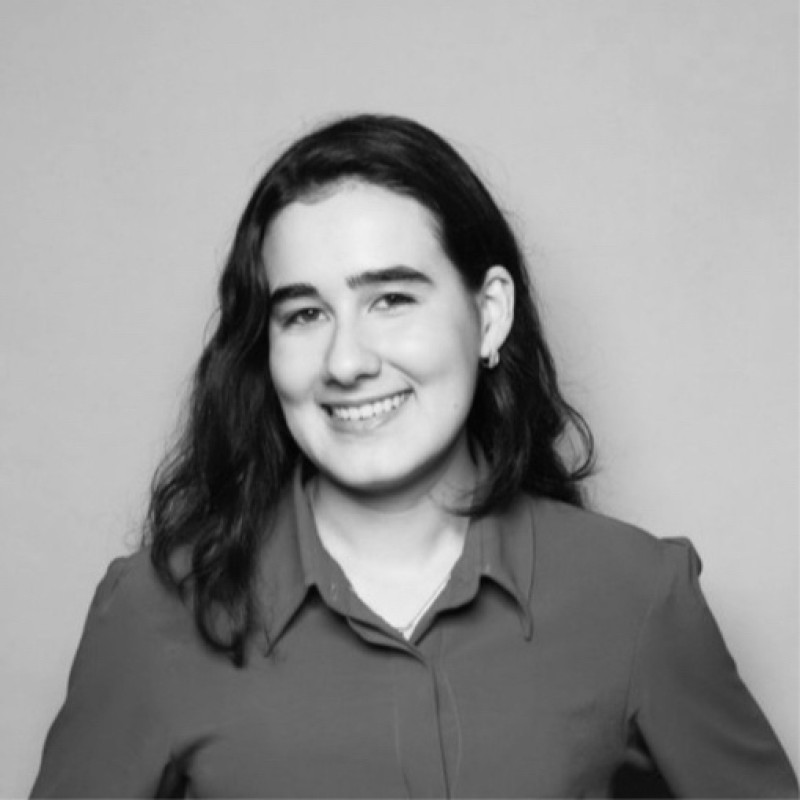
With a promising career in robotics and digital systems engineering, Victoria de León has attracted the attention of the scientific community thanks to an innovative biomaterials project for lunar missions. This 21-year-old —a Robotics and Systems Engineer from Tec de Monterrey, Mexico City campus, and currently a research intern at Carnegie Mellon University— aims to develop sustainable solutions for space exploration by using materials that can be produced or adapted in extraterrestrial environments, combining advanced engineering with environmental awareness.
Born and raised in Mexico City, Victoria represents a new generation of women in science who are breaking barriers. Her interest in space is not only technical but also deeply humanistic: she believes scientific progress should go hand in hand with sustainability and equity.
What sets Victoria apart?
Her ability to merge creativity, scientific knowledge, and forward-thinking vision — even before graduating from university. Her most notable project involves the development of an innovative biomaterial designed to detect radiation in lunar habitats. The material combines lunar regolith with insect-derived biopolymers to form a flexible film that glows in the presence of radiation, providing astronauts with a visual warning signal. Her invention is set to be tested aboard the International Space Station as part of the MISSE-21 experiment.
Gabriela Salas Cabrera — Data Scientist and Indigenous Activist
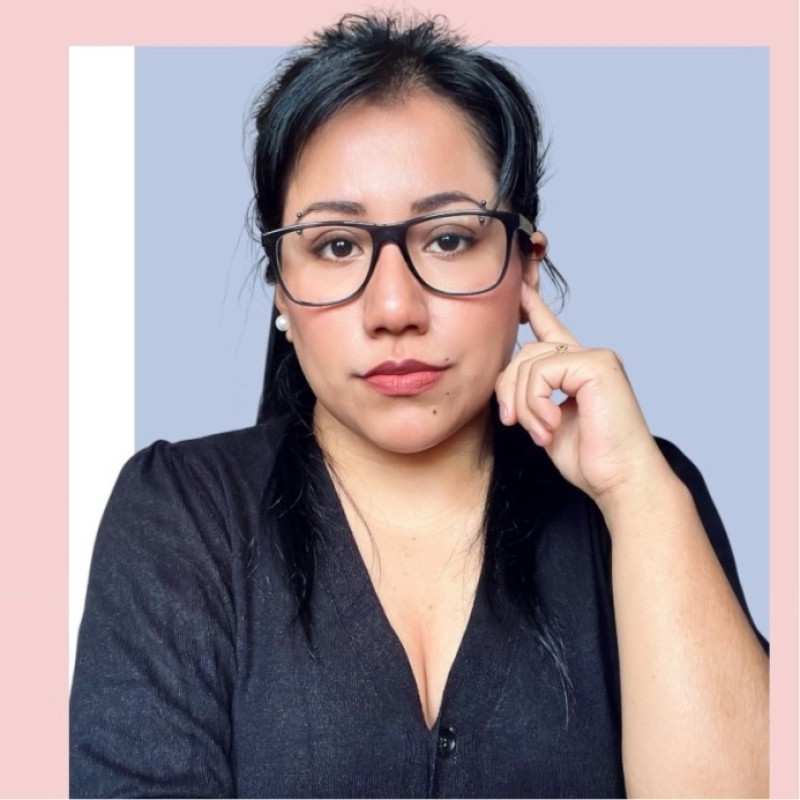
Gabriela Salas Cabrera is a data scientist deeply committed to the preservation and recognition of Mexico’s indigenous languages. Her work goes beyond the technical, it has become a cultural and social mission, particularly through her key role in integrating Nahuatl into Google Translate, a critical step in raising awareness and helping preserve this ancestral language.
Gabriela has skillfully combined her background in data science with her Indigenous activism to develop technologies that support the revitalization of native languages — an effort aimed at protecting the cultural identity of Indigenous communities and bringing them into the digital age without losing their essence.
She was born in Puerto del Caballo, a small community in Chapulhuacán, Hidalgo, Mexico. Gabriela holds a degree in Information Technology Engineering from the Universidad Tecnológica de Tula-Tepeji. She is currently pursuing a Bachelor’s degree in Mathematics from the Universidad Abierta y a Distancia de México and a master’s in Data Science at the Universidad Politécnica de Madrid.
What sets Gabriela apart?
Her ability to blend scientific rigor with a deep social and cultural commitment, proving that technology can be a powerful tool for inclusion and linguistic justice.
Noemí Hernández Guerrero — Director of Customer Success at Salesforce
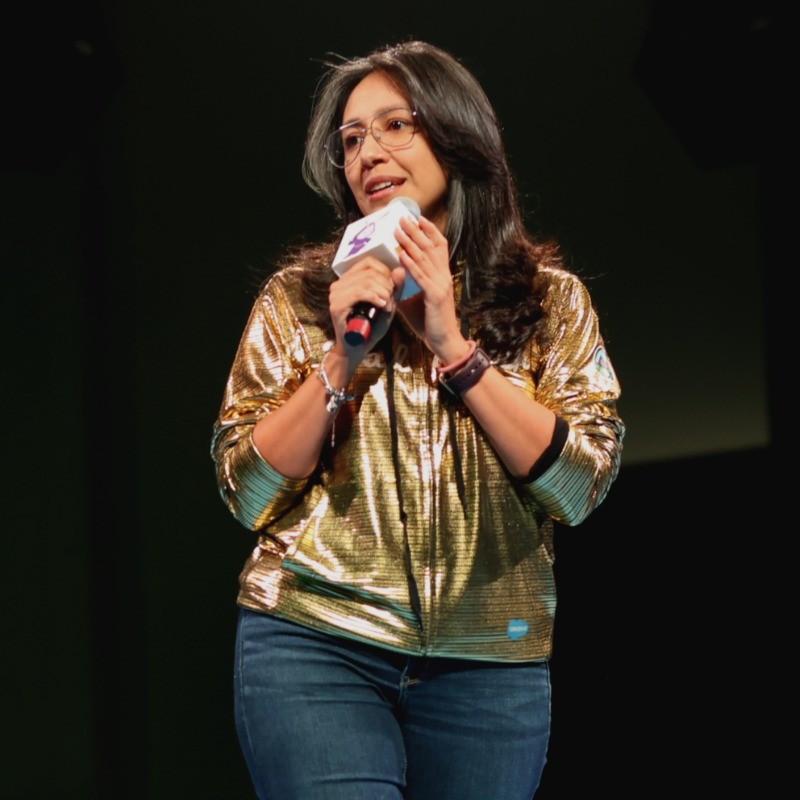
Noemí Hernández Guerrero has built an impressive career in the tech sector, establishing herself as a key figure in customer relationship management at one of the world’s most influential companies: Salesforce. As Director of Customer Success, she leads strategies to drive the adoption of technological solutions across various industries, ensuring that companies get the most value from their digital investments.
But her impact goes beyond the corporate world. Noemí is an active advocate for gender equity in the tech industry and an inspiring voice for women looking to enter or advance in traditionally male-dominated fields.
She has participated in multiple initiatives aimed at encouraging girls and young women to pursue careers in science, technology, engineering, and mathematics (STEM), and has shared her experience as a mentor and speaker at leadership and diversity forums.
Born in Mexico, Noemí combines a strong background in Information Technology with communication and leadership skills that have made her a recognized member in the Latin American tech community.
What sets Noemí apart?
Her firm commitment to the professional development of other women, her ability to lead with empathy, and her belief that technological success also depends on inclusion and representation.
Katherine Vergara — Founder of STEMtivista and Co-founder of the Video Game Studio Tónico
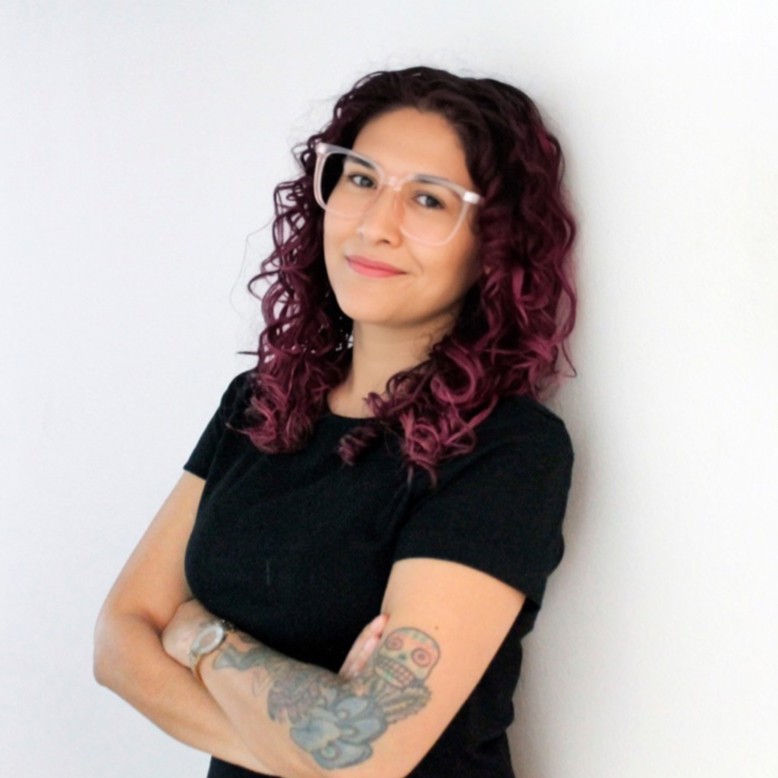
Educator, graphic designer, scientist, communicator, and entrepreneur, Katherine Vergara has made the intersection of science and creativity her playground. She founded STEMtivista, a platform dedicated to bringing science closer to diverse audiences through innovative and accessible formats. She is also the co-founder of Tónico, a video game studio that uses interactive storytelling to explore scientific and social themes.
Originally from Chile, Katherine’s work stands out for promoting critical thinking and equitable access to knowledge, especially among youth and underrepresented communities. With an integrative vision, she is expanding the ways science is communicated and experienced across Latin America.
What sets Katherine apart?
Her ability to translate complex scientific concepts into engaging and accessible experiences, using mediums like video games, visual art, and storytelling — all without sacrificing depth.
Cristina Junqueira — Co-founder of Nubank and advocate for diversity in fintech
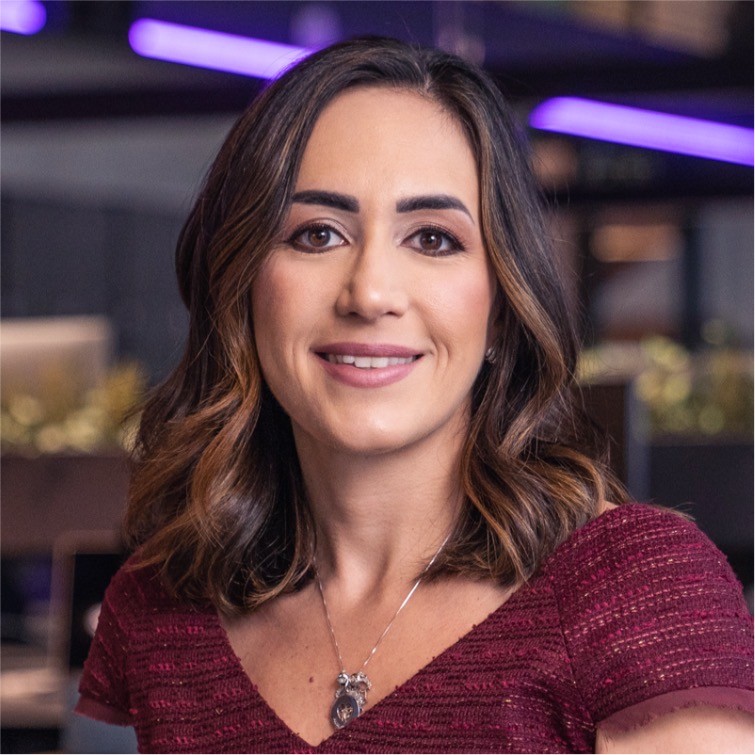
Cristina Junqueira is one of the co-founders of Nubank, the largest fintech in Latin America and a global benchmark for financial innovation. Her career combines experience in traditional banking with a strong commitment to financial inclusion and diversity. As a leader, she has driven the democratization of access to financial services through technology, transforming the banking experience for millions of people.
Her role has been pivotal not only in building a disruptive company but also in fostering a diverse and inclusive culture within the fintech sector, creating opportunities for women and underrepresented communities.
Cristina holds a degree in Industrial Engineering from the University of São Paulo, where she also completed a master’s degree. Additionally, she earned an MBA from the Kellogg School of Management at Northwestern University.
What sets Cristina apart?
Her strategic vision to transform the financial sector from within, and her passion for creating equitable opportunities by combining technological innovation with a genuine commitment to diversity.
Maria Oliveira Tamellini — Co-founder of GamerSafer
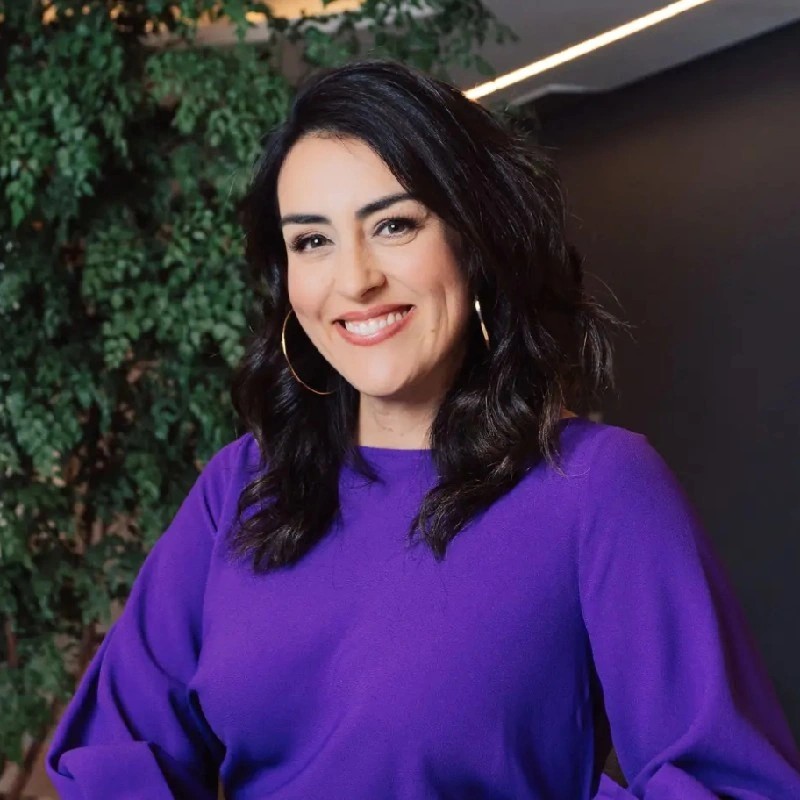
Driven by the goal of making the digital world a safer space for children and teens, Maria Oliveira Tamellini co-founded GamerSafer, a platform that uses identity verification and AI to prevent risks in online gaming environments. Based in Brazil, she has led initiatives that protect young communities from harassment, grooming, and other forms of digital violence, working closely with studios and developers around the world.
With a background in user-centered design and experience in the social impact startup ecosystem, Tamellini has built her career around creating ethical technologies that prioritize child safety. GamerSafer is not just a technical response to an urgent issue — it’s a human-centered approach that empowers both players and developers to build more positive virtual environments.
What sets Maria apart?
Her belief that digital safety should be a right embedded in design. One of her most significant achievements has been integrating privacy-respecting verification processes that allow platforms to detect risky behavior without compromising the user experience. Her work has been recognized at events such as the Global Game Jam and by responsible tech organizations across the Americas and Europe. She has also collaborated with groups like Common Sense Media and the*gamehers, both of which are dedicated to creating positive digital spaces for youth and women.
Mariana Costa Checa — Co-founder and CEO of Laboratoria
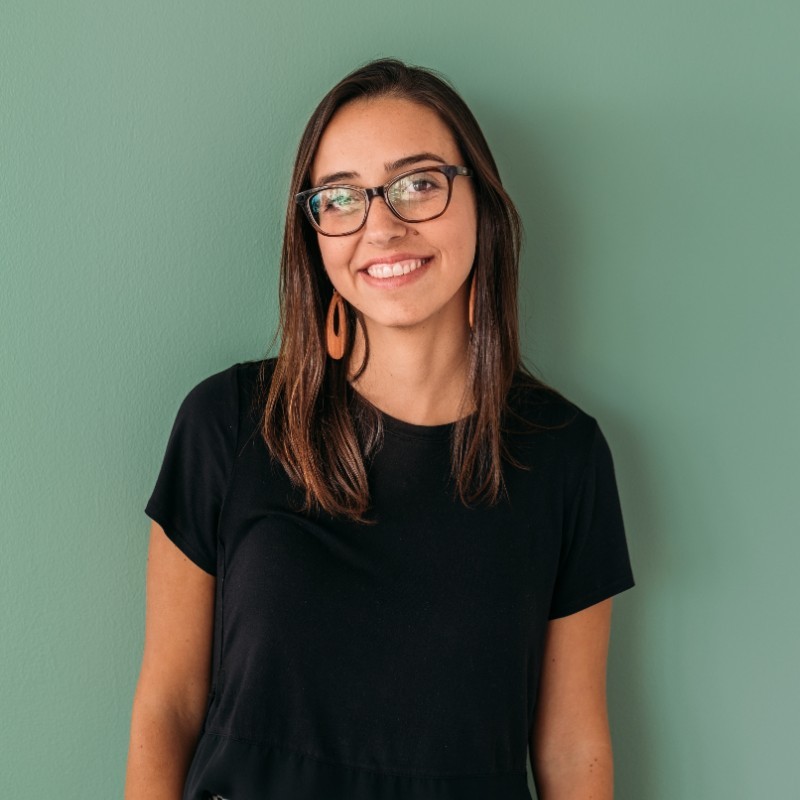
From Lima, Peru, Mariana Costa Checa has led one of the most transformative efforts to train women in tech across Latin America. As the co-founder and CEO of Laboratoria, she has paved the way for thousands of women —many of whom had no previous access to formal education in technology— to become web developers and UX designers, opening doors to new job opportunities and breaking cycles of inequality.
With a background in international relations and development, Costa Checa realized early on that technology could be a powerful tool for inclusion. Under her leadership, Laboratoria has expanded to several countries in the region and gained recognition for its innovative training model, which focuses on hands-on learning, collaboration, and socio-emotional skills.
What sets Mariana apart?
Her ability to blend a strong social vision with strategic execution. She didn’t just launch an educational program — she built a bridge between underrepresented talent and the global tech industry. Named a Young Global Leader by the World Economic Forum, Costa Checa has partnered with companies like Google, IBM, and Globant to open doors for more Latin American women in tech. Her work is a powerful example of how access to technical knowledge can also be a form of social justice.
Melissa Amado — Founder of BeE3 LabTech
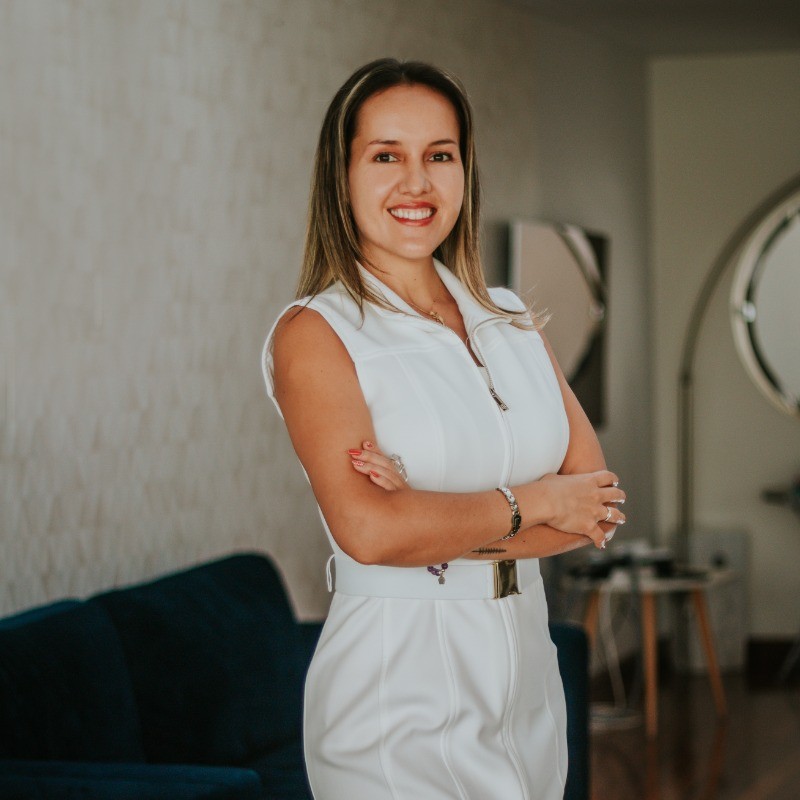
Melissa Amado is a prominent Peruvian entrepreneur in the field of technology applied to mining. She is the founder and CEO of BeE3 LabTech, a pioneering startup in Peru that develops AI-based solutions to optimize mining processes. Her work focuses on using technological innovation to improve both efficiency and sustainability in the mining industry.
She has been recognized for her leadership and contributions to the tech sector. In 2024, she received the Most Disruptive Award at the Women in Tech LATAM Awards. Melissa has also served as a mentor for organizations like WoomUp and UTEC Posgrado, supporting the professional growth of women in technology.
She holds a degree in International Business from the University of San Martín de Porres and a master’s in Social Innovation and Sustainable Economy from the University of Salamanca.
What sets Melissa apart?
Melissa Amado has made it her mission to transform one of Peru’s most traditional industries—mining—through technology. Her ability to merge innovation with sustainability has made her a disruptive force in a field long dominated by men.
Ophelia Pastrana — Physicist, economist, and transgender activist
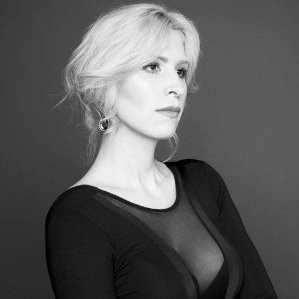
She is a well-known figure in the Latin American tech ecosystem, recognized both for her academic background and her ability to communicate science and technology with clarity, humor, and depth. She holds degrees in physics and economics (from Florida Atlantic University and the University of Sydney) and has worked as a speaker, influencer, technologist, and comedian, breaking barriers in each of these fields.
Ophelia Pastrana has been featured on several influential lists, including Mexico’s 100 Leaders of the Future by the World Economic Forum, Forbes’ 50+ Creatives, and Mexico’s 100 Most Powerful Women. Her YouTube channel and podcast are platforms where she translates complex concepts into accessible ideas for thousands of people interested in science, technology, and human rights.
Ophelia is one of the most visible voices advocating for transgender rights in Latin America, using her platform to promote inclusion and critical thinking.
What sets Ophelia apart
She combines deep technical knowledge with a unique ability to connect with diverse audiences. In an environment where representation is still limited, she has opened doors for trans voices in science and technology, becoming a role model both for her expertise and her authenticity.
Linda Patiño — Communications Manager, Google Colombia
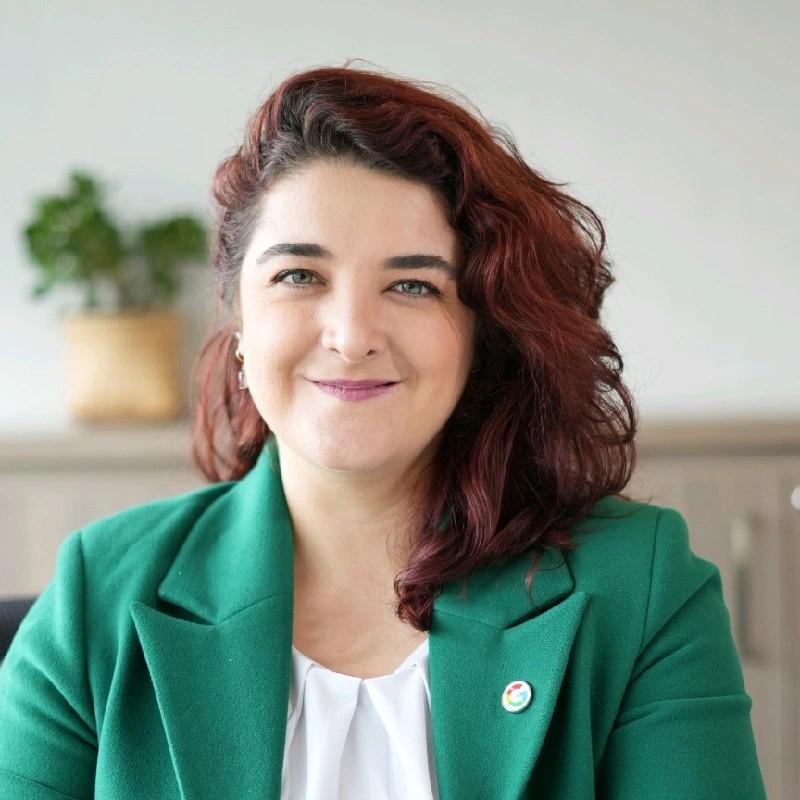
A journalist from Universidad Javeriana with a master’s degree in Gender, Media and Culture from the London School of Economics, Linda Patiño has built a career at the intersection of technology, communications and human rights. As Communications Manager at Google Colombia, she leads initiatives that promote digital citizenship, online safety, and the empowerment of women and youth through technology.
Before joining Google, she worked as a tech journalist at El Tiempo, where she was recognized for her ability to explain the social impact of digital innovation. She has also collaborated with organizations such as Fundación Karisma and participated in international forums on digital literacy, cyberbullying, and gender equity in tech environments.
What sets Linda apart?
Linda has become one of the most influential voices in Latin America on digital rights from a gender perspective. Her blend of journalistic expertise, international academic background, and social commitment makes her a leader who knows how to speak about technology — and turn it into a real tool for transformation in vulnerable communities.
Micaela Mantegna — Expert in Video Game Law and Artificial Intelligence, Founder of Women in Games Argentina
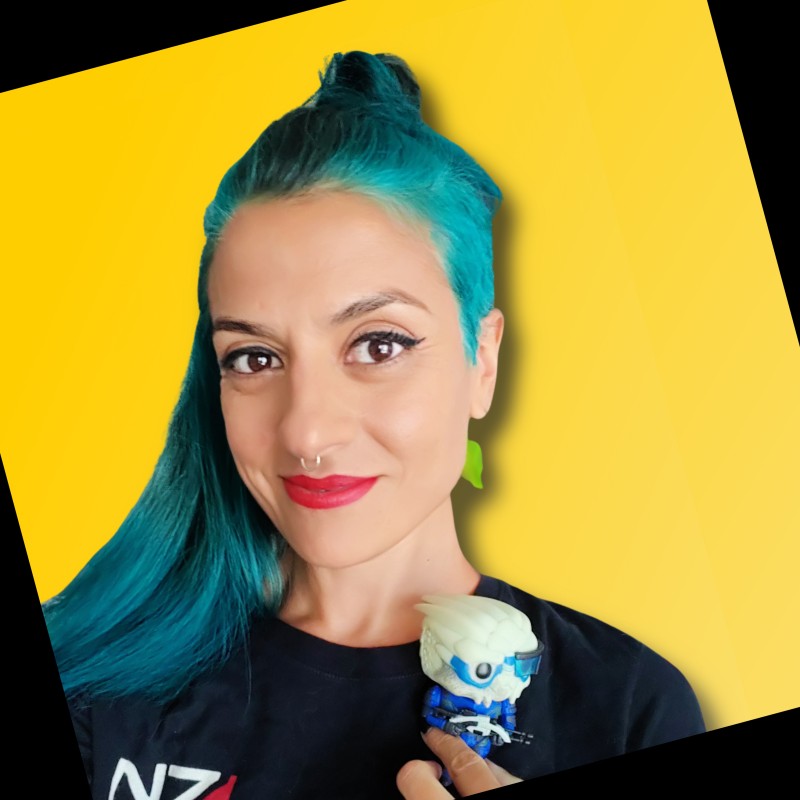
A lawyer from the University of Buenos Aires with postgraduate studies in Intellectual Property and Technology Law, Micaela Mantegna has built a unique career at the intersection of technology, ethics, and regulation. She is a fellow at the Berkman Klein Center at Harvard and a recognized global voice in conversations around video games, AI, and digital rights.
As the founder of Women in Games Argentina, Mantegna actively works to elevate the role of women in the gaming industry and foster more inclusive environments. She has advised international organizations on AI governance and tech regulation, and has spoken at high-profile platforms such as TED, UNESCO, and the World Economic Forum.
What sets Micaela apart?
Micaela combines a solid legal background with a critical perspective on the social impact of technology. Her pioneering work in video game law, along with her advocacy for ethical and inclusive AI, has positioned her as one of Latin America’s most influential voices on the digital future.
Mercedes Bidart — Co-founder and CEO of Quipu
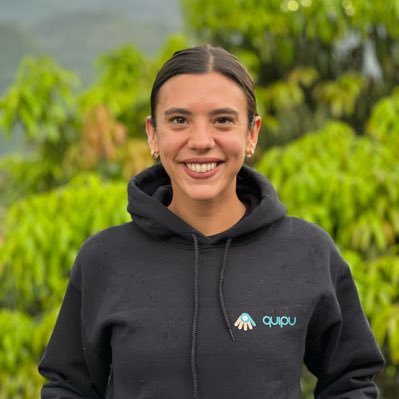
Mercedes is the co-founder and CEO of Quipu, a fintech leveraging blockchain technology to digitize and strengthen community markets across Latin America. Originally from Argentina, and with a background in urban planning and economic development from Harvard University, she has dedicated her career to building more inclusive economic systems from the ground up.
Her startup, Quipu, enables entrepreneurs and small businesses in low-income communities to build trading networks, exchange goods and services without the need for cash, and gain access to transaction histories that can open doors to the formal financial system. The model blends the spirit of community bartering with cutting-edge technology, empowering populations that have historically been excluded.
What sets Mercedes apart?
Mercedes Bidart brings a deep understanding of urban economic dynamics together with a strong commitment to social justice through technology. Her focus on blockchain-powered collaborative economies not only tackles financial inclusion but also fosters mutual support networks among small-scale entrepreneurs.
Nina da Hora — Computer scientist and cybersecurity researcher
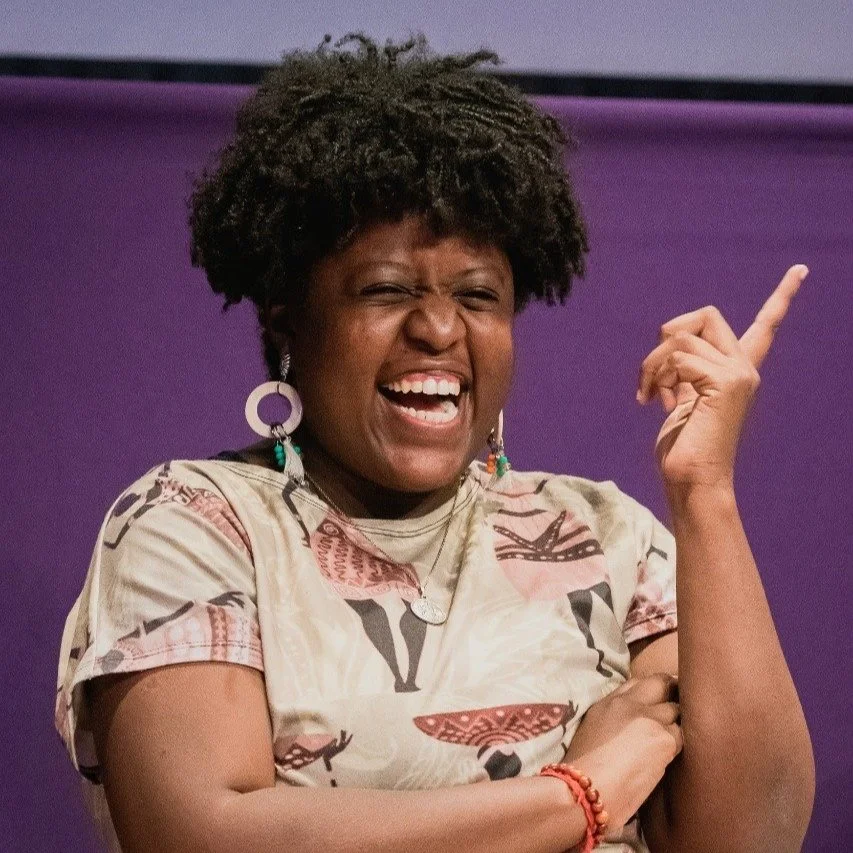
Computer scientist and cybersecurity researcher known for her advocacy of digital inclusion and her commitment to creating ethical tech that reflects Brazil’s racial diversity. Born in Rio de Janeiro, she has used her academic background and technical expertise to shed light on how algorithms disproportionately impact Afro-descendant communities.
Nina da Hora is the founder of Instituto da Hora, an organization that promotes critical thinking about technology and its social implications, particularly among Black youth. Nina has also contributed to initiatives that aim to ensure AI and other emerging technologies are developed with principles of social justice and representation at their core.
What sets Nina apart?
Nina brings a unique perspective to the tech world by placing racial equity at the heart of the innovation conversation. Her commitment to ethical technology has made her not only a leading voice in cybersecurity but also a powerful advocate for dismantling exclusionary structures and envisioning a more just and inclusive digital future. She has also extended this critical lens to the field of artificial intelligence, driving initiatives to ensure that emerging technologies are developed with principles of social justice and representation.
María Paz Gillet — CEO and Co-founder, Jooycar
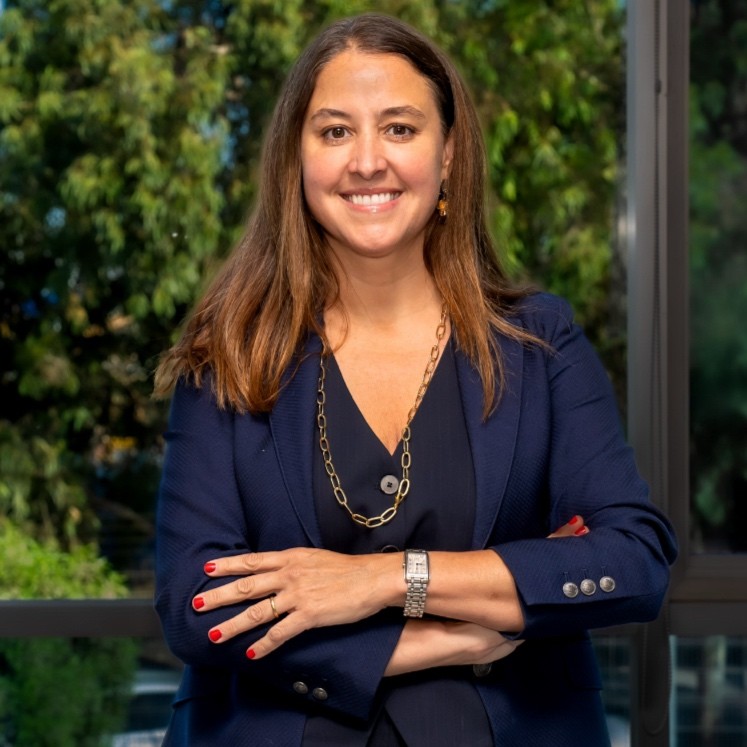
A pioneer in the insurtech sector in Latin America, María Paz Gillet leads Jooycar, a company that has transformed the auto insurance industry through telematics technology. Based in Santiago, Chile, and present in several markets across the region, Jooycar offers usage-based insurance, encouraging safer and more efficient driving. Under her leadership, the startup has secured partnerships with traditional insurers, blending tech innovation with scalable business models.
Before Jooycar, María Paz was part of the founding team at platforms like Cumplo, reinforcing her track record as an entrepreneur in highly regulated sectors.
She holds a degree in Business and Economics from Pontificia Universidad Católica de Chile. Her vision combines technology, data, and a deep understanding of the Latin American consumer.
What sets María Paz apart?
Her ability to lead innovation in industries that have traditionally resisted change. Her approach has been to transform the system from within, building bridges between startups and large insurers. She’s also one of the few female founders who has successfully scaled an insurtech company in Latin America, with proprietary technology and a strong user-centered focus.
Gabriela Ceballos — CEO and Founder, Hitch
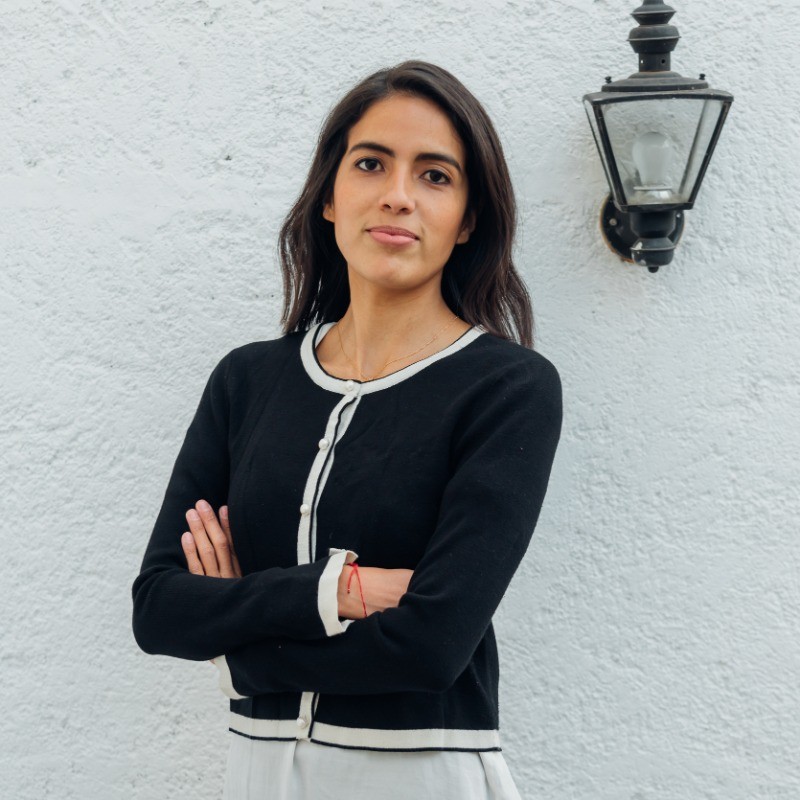
Gabriela Ceballos is the founder and CEO of Hitch, an AI-powered recruitment platform that helps companies make more effective hiring decisions. Based in Mexico, Hitch has positioned itself as an innovative SaaS solution in Latin America by automating selection processes and better matching candidates’ skills with team needs.
Gabriela brings experience in technology, talent, and operations, having worked at global companies before launching her startup. She’s recognized for her ability to turn complex HR challenges into practical, data-driven, AI-enabled solutions. Gabriela holds a degree in Economics and Finance from Tecnológico de Monterrey and earned a Master’s in Finance from EADA Business School in Barcelona.
What sets Gabriela apart?
Her pragmatic approach to solving one of the biggest bottlenecks in business growth: hiring. Gabriela combines technical expertise with a clear understanding of the human side behind every hiring process.
Eddymar Coronel — Chief Experience Officer, Fracttal
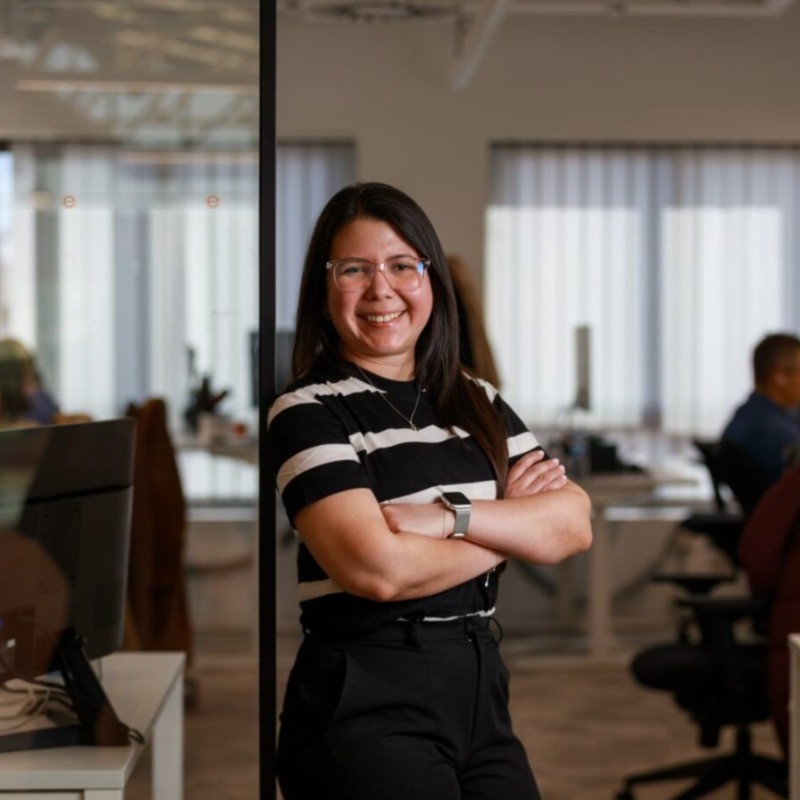
Eddymar Coronel is the Chief Experience Officer at Fracttal, the first AI-integrated Computerized Maintenance Management System (CMMS). Founded in Chile in 2014, and later expanding to the rest of Latin America and Europe, Fracttal aims to transform industrial maintenance management, digitizing processes and improving safety, efficiency, and sustainability operations for its clients.
Eddymar, originally from Venezuela, has become one of the driving forces behind building a people-centered operation with scalable processes, business intelligence, and a clear vision for the future. She began her career as an electronic engineer in 2016, and later worked as IT Engineer in Piovesan, a position in which she learned to identify patterns and design preventative solutions for technical incidents.
What sets Eddymar apart?
As a results-oriented professional, Eddymar combines strong ethical expertise with client-focused leadership to deliver both empathy and measurable results in technology, maintenance, and customer experience.
She is recognized as part of a new generation of women transforming the tech industry through leadership, assertive strategy, and innovation, as she continues to demonstrate that customer experience and technology leadership can- and should- be guided by both vision and human connection.
Manuela Gutiérrez — PMO & Operations Lead, 360 Health Data

Manuela Gutiérrez is the PMO and Operations Lead at 360 Health Data, a platform that enhances access to updated medical information by integrating scientific research, clinical evidence, and advanced technology. Based in Colombia, the company promotes global collaboration to empower healthcare professionals across South America.
With more than 10 years of experience in the software industry, Manuela has specialized in client management, visual design, and UI/UX. She has worked alongside international entrepreneurs in developing healthcare software and clinical trial studies, contributing to innovative digital solutions tailored to the medical sector.
What sets Manuela apart?
Her ability to orchestrate operations and project management while designing impactful, user-friendly digital experiences. Manuela blends technical expertise with a mission-driven vision to reduce healthcare inequality, helping professionals make better decisions and strengthening everyday medical practice in the region.
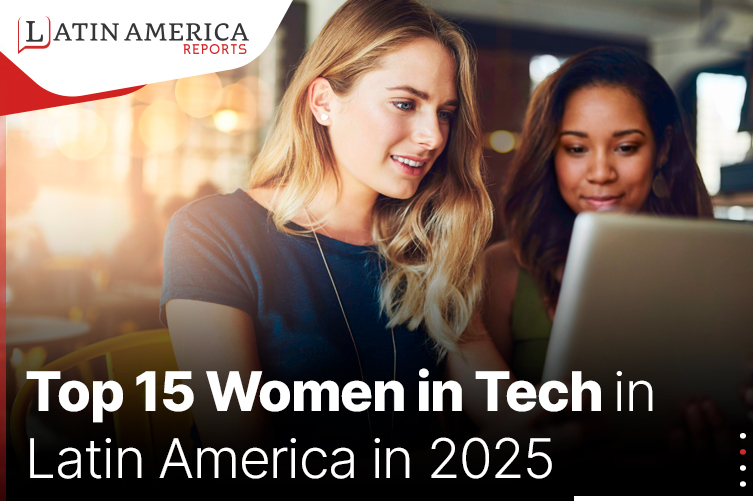
Disclosure: This article mentions client of an Espacio portfolio company.










